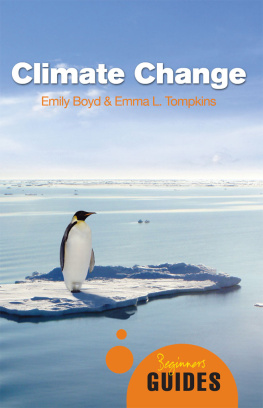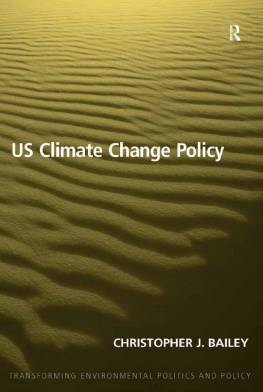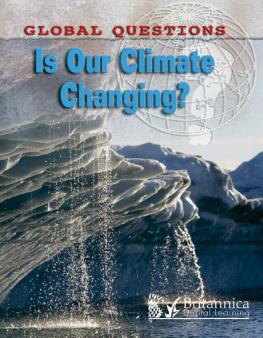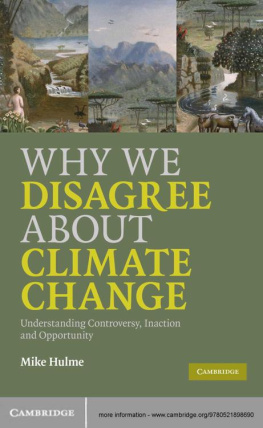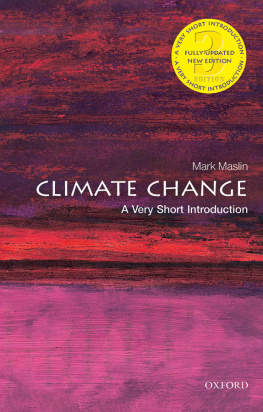Climate Change
A Beginners Guide
ONEWORLD BEGINNERS GUIDES combine an original, inventive, and engaging approach with expert analysis on subjects ranging from art and history to religion and politics, and everything in between. Innovative and affordable, books in the series are perfect for anyone curious about the way the world works and the big ideas of our time.
aesthetics
africa
anarchism
aquinas
artificial intelligence
the bahai faith
the beat generation
biodiversity
bioterror & biowarfare
the brain
british politics
the buddha
cancer
censorship
christianity
civil liberties
classical music
climate change
cloning
cold war
conservation
crimes against humanity
criminal psychology
critical thinking
daoism
democracy
descartes
dyslexia
energy
engineering
the enlightenment
epistemology
evolution
evolutionary psychology
existentialism
fair trade
feminism
forensic science
french revolution
genetics
global terrorism
hindusim
history of science
humanism
huxley
islamic philosophy
journalism
judaism
lacan
life in the universe
literary theory
machiavelli
mafia & organized crime
magic
marx
medieval philosophy
middle east
NATO
nietzsche
the northern ireland conflict
oil
opera
the palestineisraeli conflict
paul
philosophy of mind
philosophy of religion
philosophy of science
planet earth
postmodernism
psychology
quantum physics
the quran
racism
renaissance art
shakespeare
the small arms trade
the torah
sufism
volcanoes


A Oneworld Paperback Original
Published by Oneworld Publications 2009
This ebook edition published by Oneworld Publications 2012
Copyright Emily Boyd and Emma L. Tompkins 2010
The right of Emily Boyd and Emma Tompkins to be identified as the Authors of this work has been asserted by them in accordance with the Copyright, Designs and Patents Act 1988
All rights reserved
Copyright under Berne Convention
A CIP record for this title is available
from the British Library
ISBN 978-1-85168-660-5
ebook ISBN 978-1-78074-142-0
Typeset by Jayvee, Trivandrum, India
Cover design by Simon McFadden
Oneworld Publications
185 Banbury Road
Oxford OX2 7AR
England
www.oneworld-publications.com
Learn more about Oneworld. Join our mailing list to find out about our latest titles and special offers at:
www.oneworld-publications.com
For our families and godchildren
Preface
The key messages of this book are that climate change is happening and action needs to be taken. For thirty years, scientists, businesses, politicians and non-governmental organisations have debated first the reality, and now the causes, of climate change. The stakes are high.
In March 2008, a group of leading climate scientists wrote in the journal Science that the European Unions decision to try to keep the rise in global temperatures to below 2C was a recipe for global disaster and that the rise needed to be far lower than this. To keep warming below this figure, scientists argue that we must ensure the concentration of carbon dioxide in the atmosphere does not go above 450 parts per million (ppm). If levels of carbon dioxide one of the most significant greenhouse gases are allowed to rise above this level, the Earths climate could go out of balance. However, carbon dioxide concentrations have already increased from 280ppm in the middle of the nineteenth century to 385ppm in 2008.
The Earths climate may already have passed a critical point of no return. In 2005, at a conference on climate change organised by the UK Meteorological Office, scientists warned politicians that although we should aim to keep warming down to 2C, we need to prepare society for a 4C rise. A four-degree rise will result in a vastly different world: dangerous water shortages, frequent storms, drought, and completely altered human and physical geographies. There is no simple solution. We need to think creatively about how we can live with the worst consequences of climate change and ask ourselves difficult questions. How can societies adapt? Who will adapt? What will we need to adapt to?
There are already lucrative business prospects in global trading in greenhouse gases: climate change will force us to think of ways to transform societies and confront the limits of adaptation. For many, the impacts of climate change will be severe; for others, it will provide opportunities. Climate change will not only exacerbate climate and weather-related hazards but also the social maladies caused by the age-old problems of corruption, poverty, injustice and inequality. Politicians and public servants face the challenge of making difficult decisions without knowing which scenario is likely to unfold. The limited financial and human resources of local and national governments may hamper their ability to come up with innovative and costeffective climate solutions for their constituents. Governments need to act; to pursue stringent policies to stabilise greenhouse gas levels and to create incentives for changes in behaviour. But they can only do so if people, businesses and the media give them a strong enough signal.
The science and politics of climate change are complex; but humans live and cope with complications and uncertainty every day. The only way to tackle the problem is to be guided by confident caution, not paralysed by fear or uncertainty.
Acknowledgements
We are both lucky to have received guidance on climate change from some of the best thinkers in the world, including Professor Mike Hulme at the University of East Anglia and Professors Katrina Brown and Neil Adger at the Tyndall Centre for Climate Change, and direct access to experts on sustainability science such as Professors Tim ORiordan and Carl Folke. Further inspiration has come from Professor Diana Liverman who has, since the early 1980s, been a tower of strength in championing climate change and development. We both owe so much to these people for their direction and inspiration. Other scholars from a range of disciplines that have inspired us include Professor Daniel Kahneman, Professor Susan Owens, Professor Ronald Mitchell, Professor Elinor Ostrom and Professor Andy Gouldson.
We feel privileged to have had the opportunity to spend time as Fellows at the Oxford University Centre for the Environment (OUCE), assisted by the generous funds from the James Martin 21st Century School and the Leverhulme Trust. In this context we extend our gratitude to our fellow James Martin colleagues with whom we have worked closely and shared special times. In particular, we want to acknowledge Maxwell Boykoff for enlightening us on the cultural interpretations of climate change and the media. Great thanks go to David Frame, our resident paper clip and climate scientist extraordinaire, Samuel Randalls, the heretic who taught us all we need to know about the world of constructs, Maria Carmen Lemos who raises the bar on the notion of political theory, Nathan Hultman, for his intellectual capacity, rigour and enthusiasm and Timmons Roberts, who highlighted for us the importance of justice and equity in climate change and also managed to produce several books during his brief sojourn in Oxford.
Next page
